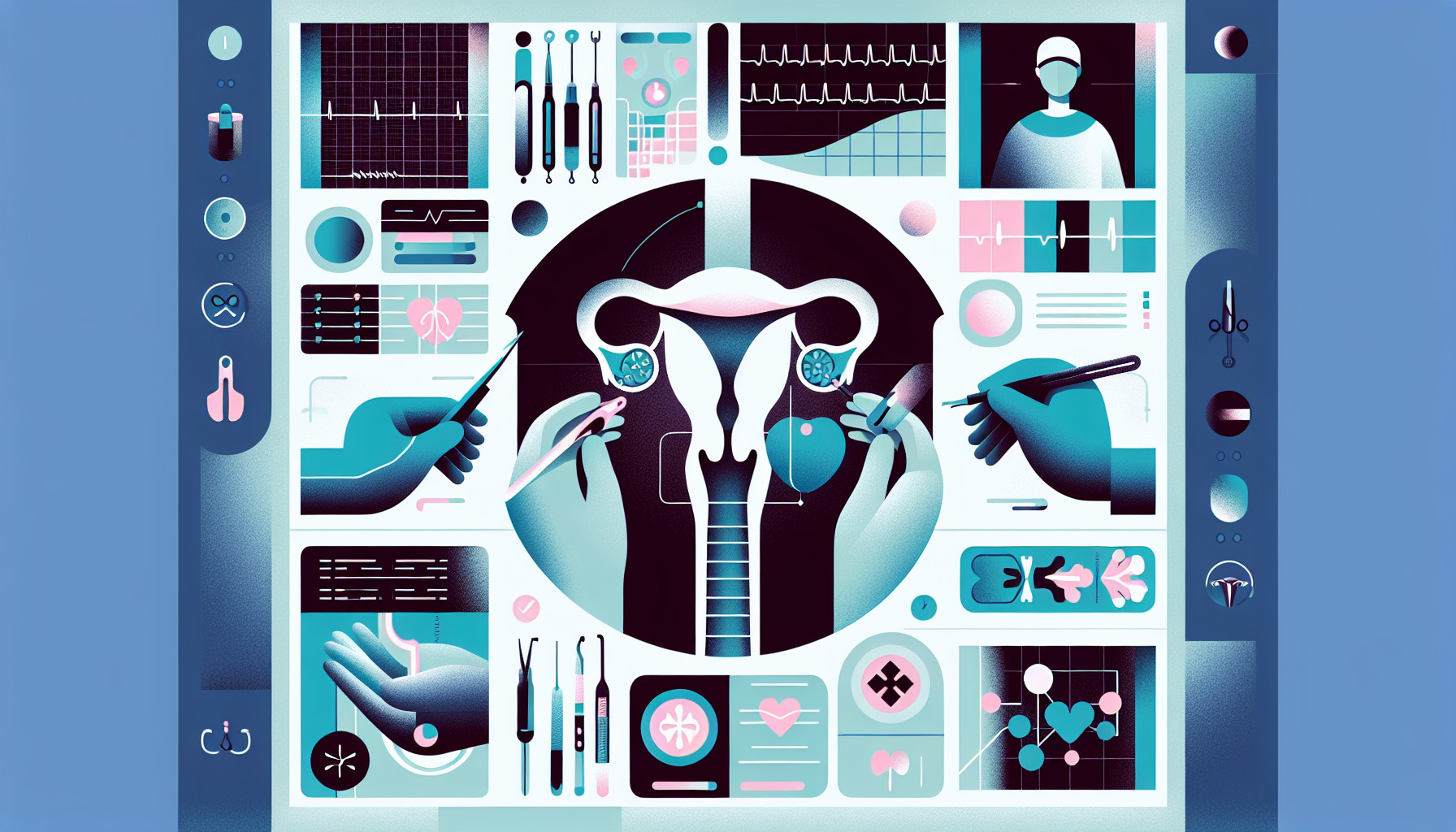Our Summary
This research looked at two treatments for heavy menstrual bleeding - a hormonal intrauterine device (IUD) called Mirena and a procedure called endometrial ablation, which uses heat to destroy the lining of the uterus. The study involved over 200 women who were randomly assigned to receive one of the two treatments. The main measure of success was how much the treatments reduced bleeding after two years. Both treatments were found to significantly reduce bleeding, but the endometrial ablation was more effective. However, a higher number of women who received the IUD needed additional treatment compared to those who had the endometrial ablation. There was no significant difference in the patient’s satisfaction or quality of life between the two groups. The findings can help doctors and patients make a more informed decision about which treatment to choose.
FAQs
- What are the two treatments for heavy menstrual bleeding discussed in the research?
- Which treatment was found to be more effective in reducing menstrual bleeding, Mirena IUD or endometrial ablation?
- Was there a significant difference in patient satisfaction or quality of life between the two treatment groups in the study?
Doctor’s Tip
One helpful tip a doctor might tell a patient about endometrial ablation is to be aware that the procedure may not be suitable for women who want to have children in the future, as it can affect fertility. It is important to discuss all potential risks and benefits with your healthcare provider before making a decision. Additionally, it is important to follow all post-procedure care instructions provided by your doctor to ensure a successful recovery.
Suitable For
Patients who are typically recommended endometrial ablation are those who have heavy menstrual bleeding that has not responded to other treatments such as medication or hormonal therapy. Endometrial ablation is often considered for women who have completed childbearing and do not wish to have more children, as the procedure can affect fertility. It is important for patients to discuss their options with their healthcare provider to determine if endometrial ablation is the right treatment for their individual situation.
Timeline
Before endometrial ablation:
- Patient experiences heavy menstrual bleeding and possibly other symptoms such as severe cramping or fatigue.
- Patient may have tried other treatments such as medication or hormonal therapies without success.
- Patient consults with their doctor about treatment options for heavy menstrual bleeding.
- Patient and doctor discuss the risks and benefits of endometrial ablation as a potential treatment option.
- Patient undergoes pre-procedure testing and preparation for endometrial ablation.
After endometrial ablation:
- Patient undergoes the endometrial ablation procedure, which typically takes less than an hour and can be done on an outpatient basis.
- Patient may experience some cramping and discomfort immediately following the procedure.
- Patient is advised to rest and avoid strenuous activities for a few days after the procedure.
- Patient may experience some light bleeding or discharge for a few days to weeks after the procedure.
- Over the following weeks and months, patient should experience a significant reduction in menstrual bleeding and related symptoms.
- Patient follows up with their doctor for post-procedure evaluation and to address any concerns or complications.
- Patient enjoys improved quality of life and satisfaction with the treatment outcome.
What to Ask Your Doctor
- What is endometrial ablation and how does it work?
- What are the potential risks and side effects of endometrial ablation?
- How long is the recovery time after undergoing endometrial ablation?
- Will I still be able to have children after undergoing endometrial ablation?
- How effective is endometrial ablation in reducing heavy menstrual bleeding?
- Are there any factors that may make me ineligible for endometrial ablation?
- What are the alternative treatment options for heavy menstrual bleeding?
- How often do I need to follow-up after undergoing endometrial ablation?
- What should I expect in terms of pain and discomfort during and after the procedure?
- Are there any lifestyle changes I should make before or after undergoing endometrial ablation?
Reference
Authors: Beelen P, van den Brink MJ, Herman MC, Geomini PMAJ, Dekker JH, Duijnhoven RG, Mak N, van Meurs HS, Coppus SF, van der Steeg JW, Eising HP, Massop-Helmink DS, Klinkert ER, Nieboer TE, Timmermans A, van der Voet LF, Veersema S, Smeets NAC, Schutte JM, van Baal M, Bossuyt PM, Mol BWJ, Berger MY, Bongers MY. Journal: Am J Obstet Gynecol. 2021 Feb;224(2):187.e1-187.e10. doi: 10.1016/j.ajog.2020.08.016. Epub 2020 Aug 12. PMID: 32795428
